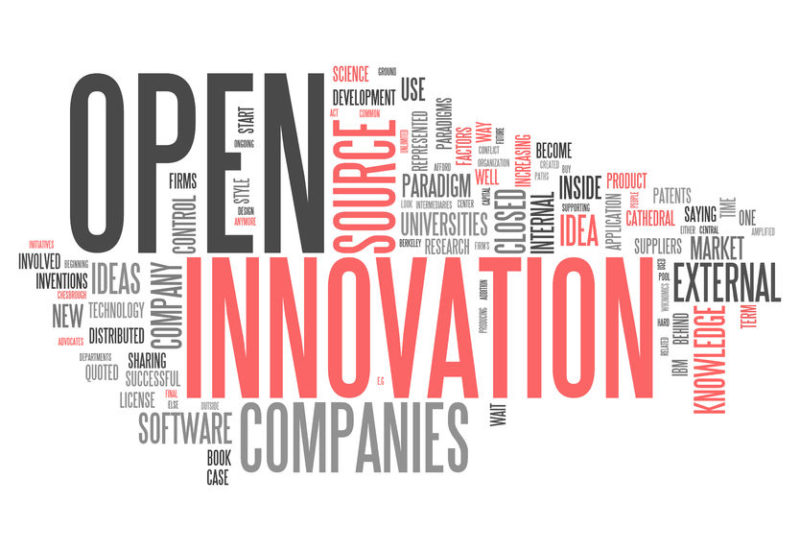On June 17th, several renowned experts in the field of “Open Innovation” participated in our online panel discussion on this very topic.
In order to remain competitive, Europe must continue to consciously invest in innovation. By doing so, it will promote the positive attributes of liberal democracies whilst also improving the welfare state. This is particularly important now that Europe is faced with the increased rise of populist movements which jeopardise these democracies.
Beyond that, Europe must be conscious of climate change. As Ms Nicola Beer, VP of the EU Parliament pointed out: “liberal democracies need to create a framework which fosters innovation through cooperation and education to tackle climate change”.
Europe needs to be a leader in innovation whilst ensuring no one is left behind. For this to become a reality, Europe must create the necessary frameworks that can foster such innovation while retaining the talent we currently have.
Another element that must be taken into account is unemployment. Data indicates that in the coming years, unemployment may increase, so in Ms Nicola Beer’s opinion, Europe must be innovative in creating new opportunities and wealth in different fields. Re-education and collaboration will be two key aspects in ensuring the success of this.
Mr Theo Lynn, Professor at DCU believes that we should be discussing “more than just open innovation, we should talk about open collaboration”. He explains that this may be “difficult because we will be collaborating with externals. I am sceptical about keeping control of intellectual property. So, from my perspective give knowledge and free licenses to people to use the IP and get them to the market”.
Education was mentioned several times. The panellists agreed that it must be fostered through innovation and structural changes. As Ms Oana-Maria Pop said: “the educational component is essential, but much more important for innovation is collaboration. Collaboration has two aspects: cooperation & coordination”.
Mindset was also widely discussed, an area which Ms Nicola Beer argues is related to education. She explains that “we should not think only about the risks when making decisions, more about opportunities. That is why mindset is so important: we need to work more in the potential and opportunities”.
It is understandable that open innovation is slowly becoming a reality because the societies do not have the know-how yet. However, institutions are making progress and will not return to the starting point.
Legislation regarding innovation is key. Ms Magda Krakowiak explained that “technology growth is exponential nowadays. The European Union should focus on creating more simple legislation regarding patterns, to be more competitive”. Open innovation is about the culture of sharing and collaborating and though we are making progress, we still have a long way to achieve it. Ms Magda Krakowiak commented that “data should be available to be exploited for others, especially in projects funded by the European Union”.
Ms Krakowiak explains that the societies are still facing barriers in achieving open innovation: “I think that still as a society we do not understand what innovation is about, we make inventions with innovation, creating something new, but sometimes innovations are very simple, they do not have to be costly, and they can have a far-reaching impact”.One astute observation made by Ms Magda Krakowiak added a huge amount to this discussion: “research is when you take money and you translate it into knowledge, but innovation is when you take knowledge, and you translate it into money. We are talking about commercializing to create growth, not inventing new things”.
Ms Aurelia Engelsberger highlighted that most of the companies consider themselves innovative, emphasising this greatly on their websites. However, when you ask the details or the strategy or how they measure the success of open innovation implementation they are rarely able to offer an appropriate response. “The mindset and infrastructure are too important, as well as having the correct leadership and a holistic scope because the employees, in the end, exchange the knowledge. We need to reduce those fears or negative attitudes towards open innovation through open innovation and show them the benefits, including the individual ones. Again, education plays a central role in developing a mindset”.
To conclude the discussion, speakers highlighted the key role innovation must play in maintaining the democratic systems throughout the EU and its importance in tackling climate change which is one of the main challenges our world is facing.
The successful implementation of innovation and the investment in research will shape the future of Europe.
We would like to thank all panellists for this fruitful conversation, and we hope to see them all soon at an in-person event organised by United Europe.
The speakers we had the pleasure to host were:
Ms Nicola Beer, the Vice-President of the EU Parliament.
Ms Magda Krakowiak, creator of high-impact innovation in healthcare
Ms Oana-Maria Pop, Head of Open Innovation at HYPE, PhD
Mr Theo Lynn, Professor of Digital Business at DCU Business School in Dublin
Ms. Aurelia Engelsberger, CEO and Founder of OMIND Consulting, Open Innovation and HR Researcher, PhD
Please find the recording of our discussion here.



